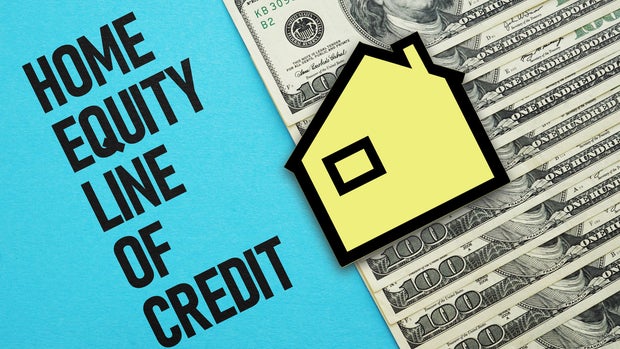Getty Images
With the average home equity level comfortably sitting over $300,000 right now and with interest rates comfortably into the double digits with personal loans and credit cards, homeowners in need of extra financing may understandably be contemplating the use of their home equity. And, with a home equity line of credit (HELOC), in particular right now, these owners can gain access to a large sum of money at an interest rate materially lower than what’s otherwise available with alternative financing options.
Borrowing $100,000, for example, can be done with relative ease as it would allow homeowners to keep a sizable equity cushion in their property as mandated by most lenders. And, with a HELOC, borrowers could be positioned for cost savings to come, thanks to a variable interest rate that may decline alongside a reduced federal funds rate. Still, borrowing from your accumulated home equity should always be done judiciously, as you could risk foreclosure if you’re unable to make payments as agreed to.
Before getting started with a $100,000 HELOC this August, then, homeowners would be well served by having the answers to a series of strategic (and timely) questions. Below, we’ll examine three questions worth asking before taking action now.
Start by seeing how much equity you’d be eligible to borrow with a HELOC here.
$100,000 HELOC questions homeowners should ask before borrowing equity now
Here are three HELOC questions that, while broadly applicable for the financial product, can be especially helpful to contemplate when there’s $100,000 worth of home equity being utilized in today’s economy:
Are rate cuts imminent?
Sure, Fed rate cuts look imminent (the CME Group’s FedWatch tool has them listed at a more than 90% chance as of August 5), but imminent doesn’t mean guaranteed. And that’s an important distinction when considering a HELOC, as that variable rate can and will adjust based on market conditions. This doesn’t mean that a HELOC isn’t still you’re most valuable choice (it’s one of the cheapest ways to borrow money now overall). But it does mean that it should be approached with a cautious understanding that rate cuts could make it cheaper … or rates could also change adversely.
Learn more about current HELOC rates here now.
How will rate cuts impact my HELOC payment?
Even if rate cuts are issued in September, how will they ultimately impact your HELOC payment? This is a question worth exploring. Fed rate action, after all, will impact HELOC rates but perhaps in a more muted way than initially anticipated, especially if the first cut this year comes in a moderate, 25 basis point amount.
In other words, don’t expect Fed rate cuts to be large and, more importantly, don’t then anticipate a substantially lower HELOC rate and payment this year. Instead, this is likely to be a more gradual process with rates, HELOC rates and payments all declining in small, but noticeable increments over an extended period.
Am I better served with a fixed-rate home equity loan instead?
The other big HELOC question worth considering now isn’t even a HELOC one, specifically. With all the variability surrounding HELOCs and the rate climate, are home equity borrowers simply better served with a fixed-rate home equity loan instead? Average interest rates on both products are practically identical now (both in the low 8% range). And home equity loan rates will remain low unless (or until) the homeowner elects to refinance.
Additionally, home equity loans come via lump sums of money versus a HELOC, which operates like a revolving line of credit, which may not be favorable if you have large, urgent financial expenses right now. This is not to argue that a $100,000 home equity loan is advantageous, but it should be examined as a viable alternative before making a final decision.
The bottom line
The above list of questions is not exhaustive, but it does mark a good starting point for homeowners considering a $100,000 HELOC now. By truly answering these questions and by speaking with a home equity lending expert, these homeowners can better tailor their options toward solving their financial needs and, more importantly, use the HELOC as intended, both now and into the future.

